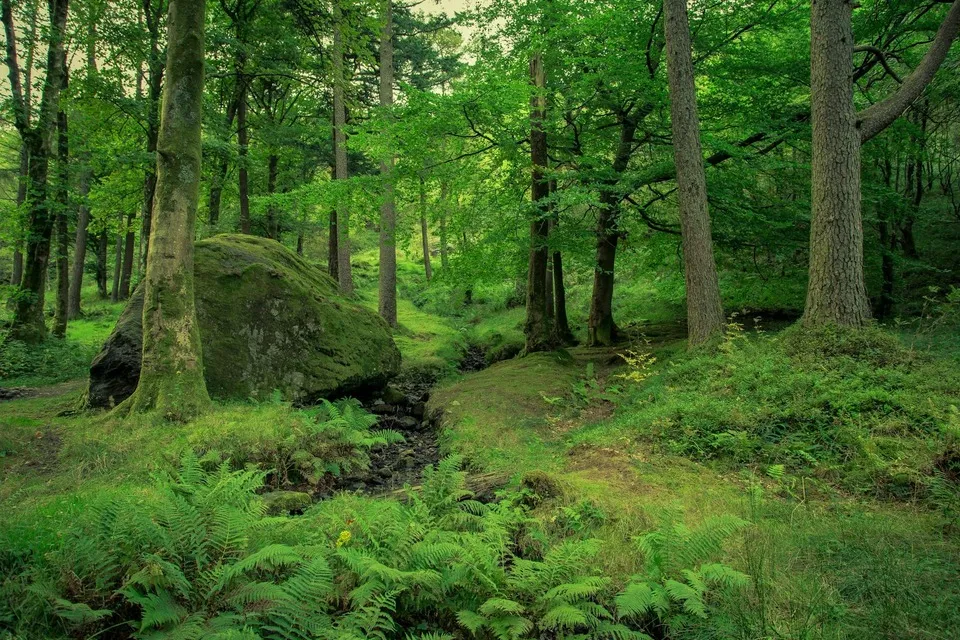Nature's Classroom
Why Choose Forest School?
Uncover the magic of outdoor learning and how Forest School nurtures growth, confidence, and a lifelong love of learning through nature-based, child-led experiences.

Beyond the Walls
Learning in Nature's Classroom
Discover how nature becomes the ultimate classroom, offering rich experiences that help your child learn, grow, and explore.
The woodland and natural environment serve as the primary teacher, offering endless opportunities for hands-on, experiential learning.
Forest schools operate in all weather conditions, teaching children resilience and adaptability while they experience the changing seasons.
The outdoors stimulates all senses, providing crucial sensory input that supports early childhood development and learning.
Children enjoy the space and freedom to move, play, and learn without the constraints of traditional classroom walls.
Regular sessions throughout the year allow children to observe and connect with the natural cycles and changes in their environment.
Simple natural materials become powerful learning tools, encouraging creativity and problem-solving skills.
Proven Benefits of Forest School
Research-backed outcomes from outdoor learning experiences
How Forest School Helps Children Thrive
Nurturing holistic development through nature-based learning
Enhances gross motor skills (climbing, running, balancing) and fine motor skills (tying knots, tool use), while building stamina, coordination, and overall physical confidence.
Builds confidence, independence, resilience, empathy, and cooperation while developing strong communication skills and emotional regulation.
Stimulates creativity, problem-solving, critical thinking, curiosity, focus, and concentration through hands-on, experiential learning.
Fosters a deep respect and appreciation for the natural world, teaching children about ecosystems and environmental responsibility.
The Guiding Principles of Forest School
Forest School is built on core principles that create a unique learning environment where children can thrive and develop a lifelong connection with nature.
Child-Led Learning
Children direct their own learning through play and exploration, fostering intrinsic motivation and a love for discovery.
Holistic Development
Addresses all aspects of a child's growth - physical, emotional, social, and cognitive - through diverse outdoor experiences.
Supported Risk-Taking
Managed risks in a supportive environment help children build confidence, problem-solving skills, and emotional resilience.
Qualified Practitioners
Trained Forest School leaders facilitate learning while ensuring safety and providing the right balance of challenge and support.
Common Questions About Forest School
Here are answers to some of the most common questions about Forest School.
Visit the full FAQ pageWhat if it rains or is cold?
Forest School operates in all weather conditions (except extreme weather). Children learn to dress appropriately for the weather, building resilience and experiencing the changing seasons first-hand.
Is Forest School safe?
Safety is a top priority at Forest Schools. All activities are risk-assessed, and qualified leaders are trained in outdoor first aid and safety procedures. The approach focuses on managed risk, which helps children learn to assess and manage risks themselves.
How does it align with school curriculum?
Forest School complements formal education by developing key skills like problem-solving, communication, and teamwork. Many activities support subjects like science, math, and language arts in a practical, hands-on way.
What should my child wear/bring?
Recommended attire includes waterproof clothing, sturdy boots, and layers for changing weather. Forest School providers typically provide a full kit list upon registration. The key is being prepared to get muddy and have fun!
The Proof is in the Outdoors: Key Research Findings on Forest School
Discover the evidence-based benefits of Forest School for children's learning and development.
"Forest School not only benefits pupils' enjoyment and health but also positively impacts educators. The Natural Connections Demonstration Project, a large UK initiative, found that 92% of pupils enjoyed their outdoor lessons more and 90% felt happier and healthier, while 72% of participating schools also reported positive impacts on teachers' own health and wellbeing."
Natural Connections Demonstration Project Report (Led by University of Plymouth for Natural England, Defra, and DfE)
"Outdoor learning significantly boosts children's confidence and wellbeing. Research from a large UK project involving The Wildlife Trusts and UCL revealed that after nature-based activities, 79% of children reported feeling more confident in themselves, and 84% felt they were capable of doing new things when they tried."
Children and Nature" Report by University College London (UCL) and The Wildlife Trusts (UK)
"Outdoor learning environments can lead to improved student engagement and classroom dynamics. A notable study found that teachers needed to redirect children's attention and address behaviour around half as often following a lesson conducted in a green outdoor setting compared to a typical indoor classroom, suggesting nature's calming and focusing influence."
Kuo, M., Browning, M.H.E.M., & Penner, M.L. (2018). "Do Lessons in Nature Hit the Mark? Comparing Student Engagement and Attention in Green Outdoor Versus Typical Indoor Classrooms.

